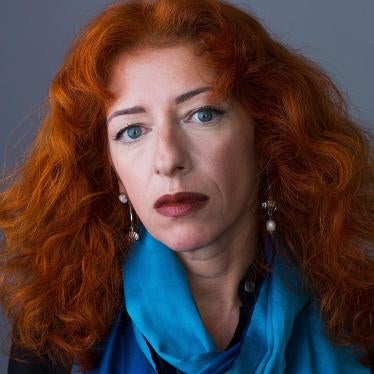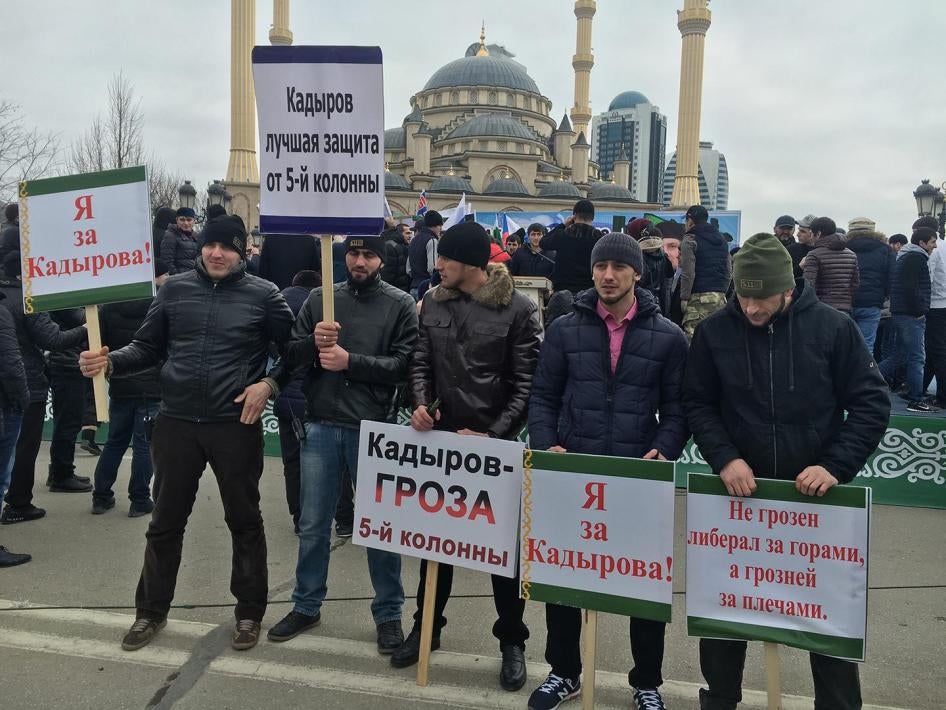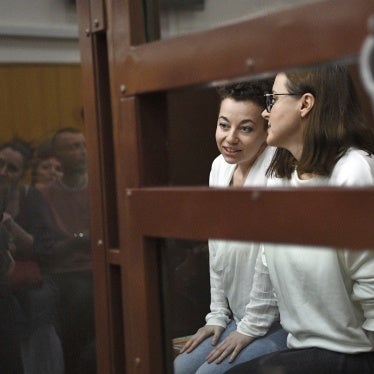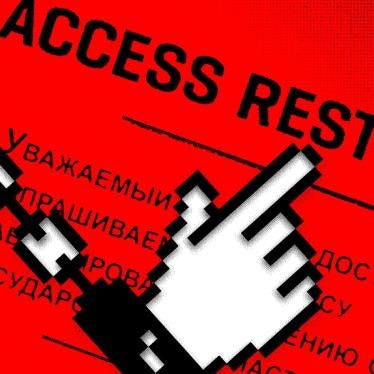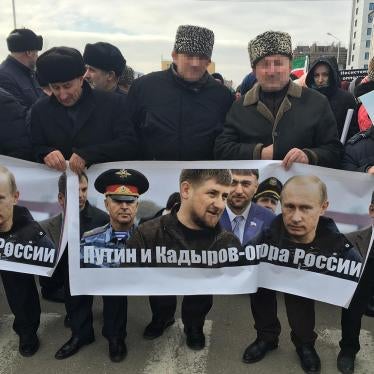Aishat Inaeva, a social worker from a small town in Chechnya, did not speak out against the region’s notorious leader, Ramzan Kadyrov. She wouldn’t have dared.
Instead, she made a WhatsApp recording, imploring him to look into the plight of ordinary people “pushed below the poverty line” by local officials, a message that went viral among Chechen users of the messaging app.
A week or so later, Inaeva found herself hauled into the studio of Grozny TV, the state television and radio broadcaster, her husband beside her, the republic’s leader in front of her, being forced to apologise publicly for her “lies”.
“You help [the poor] … I was confused, I do not know how and why I did that,” she said to the president, Ramzan Kadyrov, her head bowed. Inaeva’s husband joined in, chastising himself for “allowing her to spread all those lies”.
The 16-minute news segment sent a clear message to Chechnya’s audience: if you’re unhappy with something, keep your mouth shut or prepare to be shamed.
Public humiliation forms part of Kadyrov’s latest strategy to eradicate dissent in the republic. For close to a decade the young leader has been exercising tyrannical rule over Chechnya. A free press no longer exists, and the few journalists from independent Russian and foreign outlets reporting on ongoing abuses inside the republic find themselves at great risk of harassment, arbitrary detentions and even violent attacks by security officials and their proxies.
But the worst punishment is reserved for Chechens themselves. Those who dare to post critical comments online are increasingly being tracked down and penalised.
A recent report by Human Rights Watch described how local authorities retaliate against people who show dissatisfaction with the Chechen leadership and its policies. It found that the onslaught against dissent has intensified over the past 18 months, with even the mildest criticism on social media ruthlessly punished through unlawful, punitive detention, enforced disappearances, cruel and degrading treatment, death threats, threats against family members, and physical abuse of family members.
This severe and sweeping repression by the local authorities is designed to remind the Chechen public of Kadyrov’s total control, and to contain the flow of any negative information from Chechnya that could undermine Russia’s support.
As a result, few people in Chechnya go as far as Inaeva. If they do, retribution is fast.
In April, Ramazan Dzhalaldinov, a man in his 50s from a mountain village not far from Chechnya’s border with Dagestan, posted a video message timed to Vladimir Putin’s annual televised call-in show.
He complained that his village, Kenkhi, was in ruins as a result of the Chechen wars, and alleged that local officials were steeped in corruption. The video was picked up by internet users in Chechnya and Russia and widely shared online.
Fearing punishment from the authorities,Dzhalaldinov fled to Dagestan and made sure that his sons also left Chechnya. But in May, four weeks after Grozny TV broadcast a news segment featuring local people calling Dzhalaldinov a liar and a crook, local police came looking for his wife and their daughters, aged 17, 12 and 10.
A dozen armed men in masks and camouflage uniforms forced their way into the house late at night, dragged Dzhalaldinov’s wife and the children out of bed, and took them to the district police station.
Leaving the younger girls alone in a room, police officers beat their mother and eldest sister, saying it was punishment for the trouble caused by the head of the family. A senior official allegedly fired a gun several times over the mother’s head and choked her daughter, demanding that they persuade Dzhalaldinov to publicly apologise.
After the interrogation, police officers drove the women to Chechnya’s administrative border with Dagestan, ordering them to cross and never return. That night, their home was torched.
A few weeks later, Grozny TV broadcast a video apology by Dzhalaldinov: “I apologise. I made a mistake. I ask other people not to repeat my mistake … Now many will say I was threatened or coerced [to say this]. I make this speech voluntarily … Kadyrov rebuilt this [Kenkhi] village.”
He had been told by officials that if he publicly renounced his statement, he would be able to return to Chechnya with his family.
Kadyrov then told his two millions followers on Instagram that “some abnormal forces” had tried to use this man “to achieve their filthy, harmful objectives” but luckily, he “found the strength and wisdom” to realise his mistake and publicly admit it, so his apology was accepted.
Even those who use monikers or talk in closed groups on social media face reprisals. Late last year, a 35-year-old faculty member from a university in Grozny, Khizir Ezhiev, was chatting with friends in a private group on Facebook. When someone mentioned Kadyrov’s pilgrimage to Mecca, Ezhiev wrote: “Apparently, all sorts are welcome there these days.”
Weeks later, four men bundled Ezhiev into their vehicle and drove away. His body was found weeks later with multiple injuries. Authorities claimed he had fallen off a cliff.
The day after Ezhiev was abducted, an unrelated video surfaced of a young man walking on a treadmill in his underwear and apologising to Kadyrov.
“I am Adam Dikaev from Avtury village,” he said on camera. “Thinking that no one can find me, I wrote on Instagram [under another name] what I should not have written. They found me and took my pants down. I realised I am nobody. From now on, Putin is my father, grandfather, and tsar …”
His crime? Flippant comments on social networks about Kadyrov grovelling before Putin. The video showed Chechens the level of humiliation the government was prepared to orchestrate.
Over the past year, many from Chechnya have recounted similar stories, and described sweeping repression, relentless pressure and constant humiliation. Some say the current situation feels more unbearable than the bombing and shelling experienced during the recent war.
“We lived through the war and kept our dignity – but now they [the authorities] are taking that dignity away from us, and we who survived the war cannot live with it,” said one Grozny resident, speaking on the condition of anonymity.
